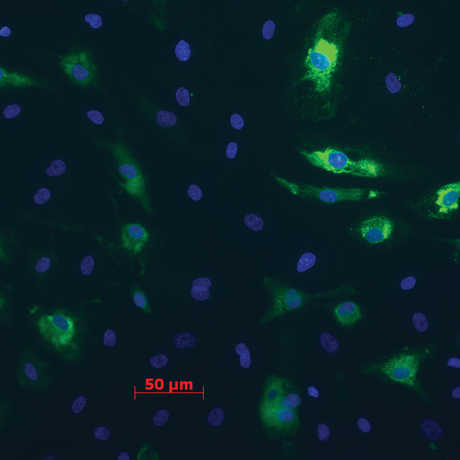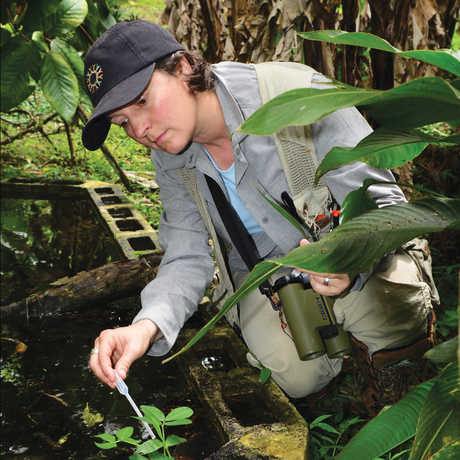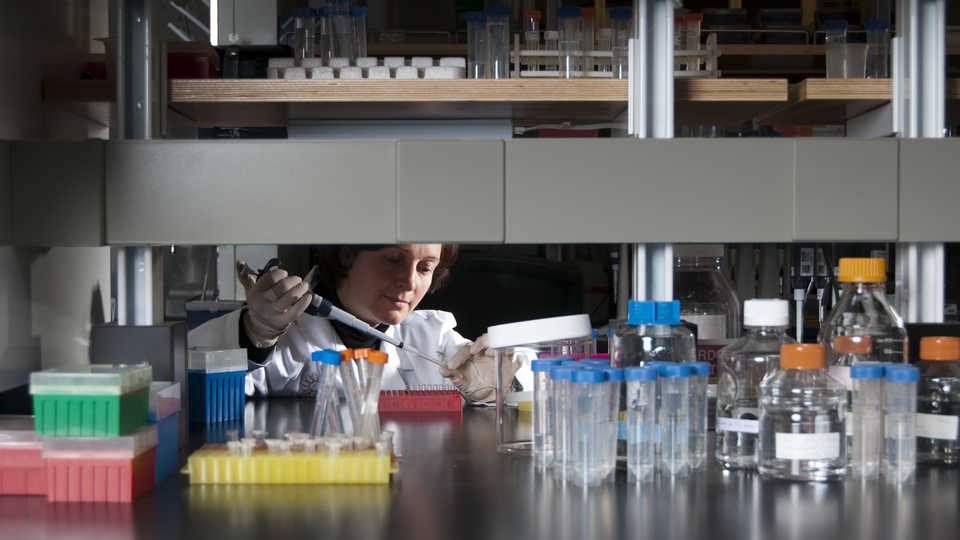Beyond Discovery
Fighting Disease Transmission with Biodiversity
Shannon Bennett, PhD
Chief of Science and Hind Dean of Research Collections, Patterson Scholar
Virus, Host, and Vector

When Shannon Bennett peers into a microscope, mosquito trap, or test tube, she sees an evolutionary arms race between virus, host, and vector. Microscopic pathogens, including dengue and malaria, are exquisitely adaptable replication machines that wreak havoc on human communities worldwide. To survive, microbes must move from host to host, sometimes by way of third-party vectors—like mosquitoes.
Bennett explores the way biodiversity loss impacts the viruses that can cause human communities no end of grief. Her team travels the tropical world to study the diversity and abundance of mosquitoes across a variety of habitats—from pristine forests to rice fields and crowded urban centers—and see what happens to key vector species in disturbed systems. Recent results, says Bennett, paint biodiversity as one of humankind’s “greatest defenses against the spread of invasive mosquitoes and deadly disease.”
Connecting Health and Environment

“Thailand is packed with a great diversity of mosquitoes and the hosts they feed on,” says Bennett, who has conducted extensive biodiversity research in the nation’s central region. “The country’s complex landscape is well-suited for our studies, but can be quite dangerous for local human communities dealing with rapidly-evolving mosquito-borne illnesses.”
In 2008, Bennett’s team collected more than 60,000 female mosquitoes from six distinct habitats—moving from relatively undisturbed forests to much-altered suburban and urban communities—in central Thailand’s Nakhon Nayok province. They observed that two key disease-spreading vector species—Aedes aegypti and Culex quinquefasciatus—increased with biodiversity loss. As the study moved into urban centers, these two most dangerous species dominated the landscape, displacing “safer” mosquito species that don’t transmit disease. “Our results,” says Bennett, “are a critical first step towards understanding the living link between healthy ecosystems and the health of our expanding human communities worldwide.”
Interfacing With Communities
Whenever possible, Bennett works to translate her findings beyond scientific publications to real-world action. She works with partners in public health to weigh-in on human health recommendations.
“Governments should think about biodiversity conservation as a way to protect their citizens,” says Bennett. “Our findings also carry common-sense recommendations for individuals everywhere—for instance, we ask folks to make sure they aren’t luring mosquitoes into their yards with standing water. From big-picture thinking to everyday action, we can make a dent in the spread of deadly infections while encouraging the protection of critical biodiversity.”
Department: Microbiology
Title: Chief of Science and Hind Dean of Science & Research Collections, Patterson Scholar, Associate Curator of Microbiology
Expeditions: Six and counting
Videos:
Trapping Mosquitos
The Life Cycle of Dengue
The Evolution of Microbes
Related Websites:
Shannon's IBSS staff page
Infectious Disease Map
This Week in Virology


